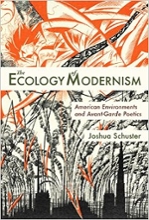 Joshua Schuster
Joshua Schuster
What Is Extinction? A Natural and Cultural History of Last Animals
Life on Earth is facing a mass extinction event of our own making. Human activity is changing the biology and the meaning of extinction. What Is Extinction? examines several key moments that have come to define the terms of extinction over the past two centuries, exploring instances of animal and human finitude and the cultural forms used to document and interpret these events.
Offering a critical theory for the critically endangered, Joshua Schuster proposes that different discourses of limits and lastness appear in specific extinction events over time as a response to changing attitudes toward species frailty. Understanding these extinction events also involves examining what happens when the conceptual and cultural forms used to account for species finitude are pressed to their limits as well. Schuster provides close readings of several case studies of extinction that bring together environmental humanities and multispecies methods with media-specific analyses at the terminus of life.
What Is Extinction? delves into the development of last animal photography, the anthropological and psychoanalytic fascination with human origins and ends, the invention of new literary genres of last fictions, the rise of new extreme biopolitics in the Third Reich that attempted to change the meaning of extinction, and the current pursuit of de-extinction technologies. Schuster offers timely interpretations of how definitions and visions of extinction have changed in the past and continue to change in the present. 2023, Fordham University Press.
 Calamity Theory: Three Critiques of Existential Risk
Calamity Theory: Three Critiques of Existential Risk
A new philosophical field has emerged. “Existential risk” studies any real or hypothetical human extinction event in the near or distant future. This movement examines catastrophes ranging from runaway global warming to nuclear warfare to malevolent artificial intelligence, deploying a curious mix of utilitarian ethics, statistical risk analysis, and, controversially, a transhuman advocacy that would aim to supersede almost all extinction scenarios. The proponents of existential risk thinking, led by Oxford philosopher Nick Bostrom, have seen their work gain immense popularity, attracting endorsement from Bill Gates and Elon Musk, millions of dollars, and millions of views. Calamity Theory is the first book to examine the rise of this thinking and its failures to acknowledge the ways some communities and lifeways are more at risk than others and what it implies about human extinction. 2021, University of Minnesota Press.
 The Ecology of Modernism: American Environments and the Avant-Garde
The Ecology of Modernism: American Environments and the Avant-Garde
In The Ecology of Modernism, Joshua Schuster examines the relationships of key modernist writers, poets, and musicians to nature, industrial development, and pollution. He posits that the curious failure of modernist poets to develop an environmental ethic was a deliberate choice and not an inadvertent omission.
In his opening passage, Schuster boldly invokes lines from Walt Whitman’s “Crossing Brooklyn Ferry,” which echo as a paean to pollution: “Burn high your fires, foundry chimneys! cast black shadows at nightfall!” Schuster labels this theme “regeneration through pollution” and demonstrates how this motif recurs in modernist compositions. This tolerance for, if not actual exultation of, the by-products of industrialization hindered modernist American artists, writers, and musicians from embracing environmentalist agendas.
Schuster provides specific case studies focusing on Marianne Moore and her connection of fables with animal rights; Gertrude Stein and concepts of nature in her avant-garde poetics; early blues music and poetry and the issue of how environmental disasters (floods, droughts, pestilence) affected black farmers and artists in the American South; and John Cage, who extends the modernist avant-garde project formally but critiques it at the same time for failing to engage with ecology. A fascinating afterword about the role of oil in modernist literary production rounds out this work. 2015, University of Alabama Press.



